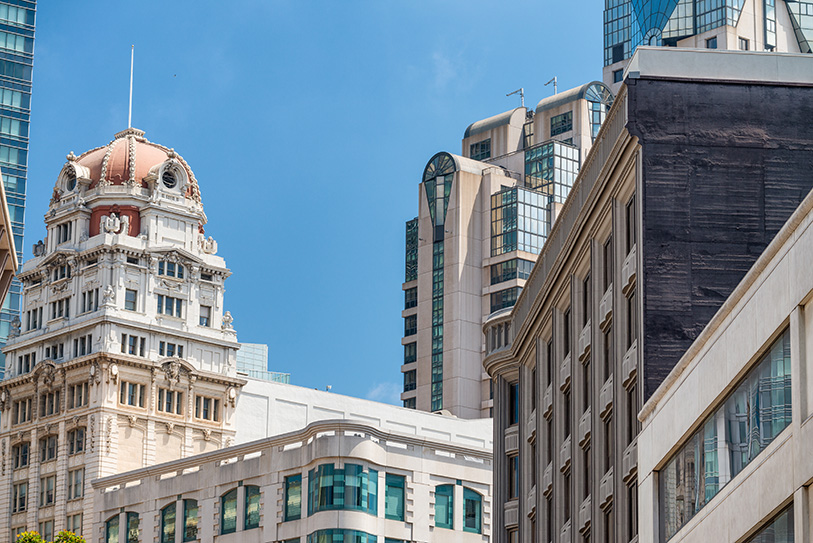On September 1, 2020, the San Francisco Board of Supervisors unanimously passed an emergency ordinance to temporarily protect workers and job applicants from adverse action if they test positive for COVID-19, or are isolating or quarantining, or have previously isolated or quarantined, due to COVID-19 symptoms or exposure. The ordinance took effect immediately when Mayor Breed signed it on September 11, 2020.
Covered Employers, Workers and Applicants
The ordinance covers an “employer” as defined in Section 18 of the Labor Code and includes anyone who directly or indirectly (including through the services of a temporary services or staffing agency) employs, contracts with or hires a worker.
A “worker,” as defined under the ordinance, includes any person providing labor or services for pay within the geographic boundaries of San Francisco who is either: (1) an employee under California Labor Code section 2750.3 (including a part-time or temporary employee), or (2) an independent contractor or other person who has performed at least 16 hours of labor or services for the employer, provided personally by the individual, independent contractor or other person based on the intellectual or manual efforts of the individual rather than the sale of product.
An “applicant” is a person who has applied, may apply or otherwise seeks to provide services for pay as a worker for an employer, including an employer’s former workers being considered for employment or contracting after furlough, layoff or other separation.
Worker and Applicant Protections
The ordinance makes it unlawful for an employer to:
- Discharge, threaten to discharge, demote, suspend, discipline, reduce employee benefits, or in any manner discriminate or take adverse action against any worker who is absent from or unable to work, or who requests time off work, because the worker tested positive for COVID-19 or is isolating or quarantining, or has previously isolated or quarantined, due to COVID-19 symptoms or exposure (“COVID-19-related reasons”), without regard to whether the worker would otherwise be eligible to take paid or unpaid leave under any employer benefit program or other local, state or federal protection;
- Count a worker’s absence from or inability to work for any of the above COVID-19-related reasons as an absence that may lead to or result in discipline, discharge, demotion, suspension or any other adverse action, without regard to whether the worker would otherwise be eligible to take paid or unpaid leave; or
- Take any adverse action against a worker because the worker tested positive for COVID-19 or is perceived to have been infected with COVID-19, without regard to whether the worker takes paid or unpaid leave; provided, however, that an employer shall not allow a worker who is experiencing any sign or symptom of COVID-19, or who has confirmed or suspected COVID-19 infection, to return to work onsite until the worker may do so consistent with the Local Health Officer’s return-to-work guidance.
Employers may require a worker to identify the general basis for their absence or inability to work, or their request to take off work. However, an employer may not require the disclosure of health information or other documentation, such as a doctor’s note.
90-day Rebuttable Presumption of Adverse Action
If an employer takes adverse action against a worker within 90 days of their absence from work or request for time off for COVID-related reasons, there is a rebuttable presumption that the adverse action was taken in violation of the emergency ordinance. An employer may rebut the presumption by establishing a basis for the adverse action, such as the worker’s performance or misconduct.
Applicant Protections
The ordinance also makes it unlawful for an employer to rescind an offer to employ or contract with an applicant, or to make a decision to employ or contract with an applicant, based in whole or in part on whether an applicant tested positive for COVID-19 or is isolating or quarantining, or has previously isolated or quarantined, due to COVID-19 symptoms or exposure.
If an applicant is unable to start work because the applicant tested positive for COVID-19 or is isolating or quarantining due to COVID-19 symptoms or exposure, an employer must, where reasonably feasible, reasonably accommodate the applicant by scheduling a later start date.
Employers should note that the reasonable accommodation provision for job applicants related to COVID-19 is contrary to the EEOC guidance (C.4.), which states that employers may withdraw a job offer if an applicant has COVID-19 or symptoms of it. Under the ordinance, San Francisco employers are prohibited from withdrawing an applicant’s job offer because of COVID-19-related reasons. Instead, the applicant should be given a later start date.
Anti-Retaliation and Enforcement Provisions
Employers must not interfere with, restrain or deny the exercise of rights under the ordinance, and it’s unlawful for an employer to take any adverse action against any worker or applicant in retaliation for exercising rights under the ordinance, which includes requesting or taking leave.
The Office of Labor Standards Enforcement (OLSE) is authorized to enforce the ordinance and may issue guidelines or rules. A worker or applicant may report suspected violations to the OLSE, which may investigate and order appropriate relief to the worker or applicant (i.e., reinstatement, payment of lost wages), as well as order payment of administrative penalties (up to $1,000 for first violation, $5,000 for second violation and $10,000 for third and subsequent violations). Employers may also choose to utilize an appeal procedure after the OLSE has made a determination of violation. Any final administrative decision is enforceable as a judgment in Superior Court.
Expiration
The ordinance will expire after 61 days of enactment unless reenacted by the board.
San Francisco employers should ensure that managers, supervisors, and those involved in the hiring and recruiting process are aware of the ordinance’s requirements and trained in how to comply.
Bianca Saad, Employment Law Subject Matter Expert, CalChamber
CalChamber members can read about other San Francisco local ordinances, like their COVID-19 Public Health Emergency Leave, on HRCalifornia. Not a member? See what CalChamber can do for you.




